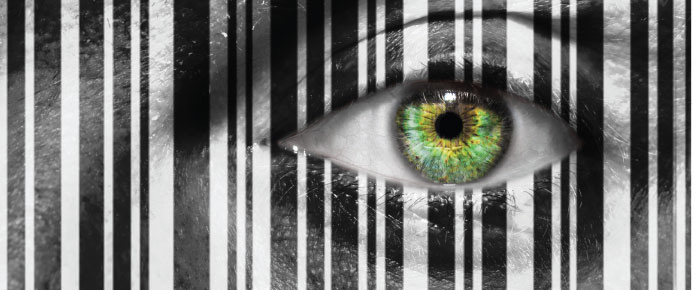
Supervising a Bank Secrecy Act/anti-money laundering (BSA/AML) Financial Intelligence Unit (FIU) for all the banks in our holding company is a full-time job that I love. I have always had a strong liking for the BSA/AML area, but when I was exposed to the Human Trafficking (HT) element, it became my passion. I have often been asked, "How did you get involved in your interest in human trafficking?" My answer was and is, "How can you not get involved? How can you not report unusual happenings? How can you not?"
The topic of human trafficking was introduced to me several years ago through a coalition-sponsored meeting involving law enforcement and a newly formed Human Trafficking Coalition. I saw a huge hole in the knowledge of the local law enforcement and citizens of the community and in comparison, the very few coalition members that were trying to affect change and knowledge in mid-Missouri. In light of this, I became involved in bringing this heinous crime to the attention of citizens, and groups both locally and nationally. The general perception from the groups is twofold: (1) This is an international issue and does not concern us and (2) It cannot happen to me, in my part of the United States, and especially in the smaller towns.
When I heard these comments, this reemphasized a huge need for the education regarding HT. Generally when I get through speaking, there is an eerie quiet in the room as I have usually made them aware of this hidden problem that they now embrace. Then the questions start: "Does this happen here? Can it really happen in small towns? In our community? I thought it was just international immigrants? How can we help educate local law enforcement and those around us? Has it happened here? You mean my children/grandchildren could be victims? I thought it was just prostitution, and I learned that slave labor is all around us? How young?" These are some of the starting questions because it hits them personally and in their community, and also because they do not want it in their neighborhood. The awareness starts to seep into their thoughts and fears. That's when I know they understand the scourge of HT and that they want to prevent this from ever touching their life and the life of others. When they invite me back to continue the conversation, I know I have advocates that want to make sure we are educated enough to stop this blight.
After speaking, I have had audience members tell me that they know that they have seen this type of activity before, but did not know it had a name and what to do about it. As a response to their concern, this is what you should do if you suspect HT. First and foremost, if you witness or suspect an HT event, call 911 as soon as it is safe to do so! In addition, I always recommend that the HT toll-free hotline be called: 1-888-373-7888 or you can also text BeFree (233733). It is operated 24/7 and addresses all HT events for the entire country. Take out your cell phone (we almost all have them now) and save this number in order to have it ready in case it is needed. I have mine under: HT ICE (In Case of Emergency), so it can be brought up quickly in a search on my cell.
If you get home and realize that a report needs to be made, an anonymous tip can be made utilizing the computer form at: http://www.polarisproject.org/what-we-do/national-human-trafficking-hotline/report-a-tip.
Will you ever know if your tip leads to the arrest of a handler/pimp or helped rescue a HT victim? Probably not, but can you sleep at night if you remain silent? All are anonymous, and chances are you will never know whether your tip led to saving someone; however, it may be the one tip that points law enforcement in the right direction. Let the professional law enforcement officers do their work; do not take it into your own hands.
My recommendation for all banks and employees is to spread HT education.
- Educate your staff. If you educate the front line and employee contact personnel on HT, they will call you or file an internal incident report if they suspect unusual HT potential or activity.
- Have a meeting with local banks or through your banking associations. Enlighten them and get them on the road to educating their staffs.
- Volunteer to speak to civic organizations and bring this issue to their attention.
- And lastly, read books and look up HT on your computer. Stay engaged and current on issues of concern in your area. Google: HT and your state, the links will surprise you due to their numbers.
"Human trafficking is a hidden crime — and every one of us needs to know the indicators to look for." The Department of Homeland security,1 through its Blue Campaign is just one of the excellent resources easily (and free) accessible to you to train with regarding HT, as well as many others. One of the resources to help bring it home (and kudos to them for doing so) is the Michigan Law School at the University of Michigan. Their Human Trafficking Database launched in February 2011 "hopes to strengthen anti-trafficking laws in the United States…" It is an ongoing project that supports all who are involved "who are working on behalf of human trafficking victims"
On the risk assessments side (one of my other passions — I guess you can have more than one — HT tugs at the heart strings while the risk assessment scenario is realistic), HT should be recognized as high-risk and increasing (unfortunately). This may result in a change in management perspective or a change in your monitoring process. However, the problem with HT is that from the banker's perspective, it does not stand out in the way other higher dollar transactions or structuring may, but unusual activity may be present that you should report. Law enforcement may have the other piece of the puzzle and be able to link your tip or Suspicious Activity Report (SAR) with others to help an investigation. Put keywords, names of URLs, business names, etc., in your search engine that are indicative of HT and run the list frequently to point to issues that may be indicative of potential trafficking. Look for common address scenarios, look at your accounts that have large cash in/out and your due diligence shows no source of income — research, ask, etc. If nothing arises, keep it on your radar, something may pop up. As has been previously stated, train your staff and take their incident reports seriously. That gut feeling that they or you have, may be just what law enforcement needs to take a case to the next level. Discuss issues and indicators with law enforcement in your area. They trust our instincts and this relationship is very important. It is a collaborative effort. Keep in mind that the overall goal is to decrease HT in the sex and labor arenas.
I recently had the joy of seeing the play If/Then in Washington D.C. and the If/Then scenarios came into my thoughts in regards to HT (although that is not what the play is about). If the kidnapping, running away, choice to go to the United States to have a better life, and so on, that lead to my being sexually or labor trafficked had not happened, then I could have graduated from high school, could have had my Dad walk me down the aisle, could have had a good home and kids. What if HT forever changes the lives of the trafficked persons, if saved; however, many are not. None of it bodes to the good. Even if you play a small part, get involved. If you or your staff understand and report potential HT activity, then we may stop this blight of HT — at least a little.
Find your passion…
Human trafficking education is one of my passions. This year, I challenged my staff to find their passion. They all reported back to me to present their issues at the regular department meeting, and I am pleased that topics such as elder abuse, Internet gambling, local law enforcement issues, identity theft and identity fraud, HT, remote deposit capture issues, money laundering placement, etc., were all claimed, and I have found their passion to help them help others through their knowledge. By doing this, their buy-in and excitement about their chosen 'passion' has proven to be an impetus to understand the concerns we all face. Their excitement infects all of us and helps us learn and hone in on unusual activities and the reasons for them. Lead and others will follow — willingly and thrive on it. What is your passion?
 Anna Rentschler, CAMS, vice president and BSA officer, Central Bancompany, Jefferson City, MO, USA, anna_rentschler@centralbank.net
Anna Rentschler, CAMS, vice president and BSA officer, Central Bancompany, Jefferson City, MO, USA, anna_rentschler@centralbank.net
- Joint testimony of Alice Hill Chair, Blue Campaign U.S. Department of Homeland Security & James Dinkins Executive Associate Director Homeland Security Investigations Immigration and Customs Enforcement U.S. Department of Homeland Security before the Committee on Homeland Security & Governmental Affairs United States Senate "Combating Human Trafficking: Federal, State, and Local Perspectives" on Monday, September 23, 2013










